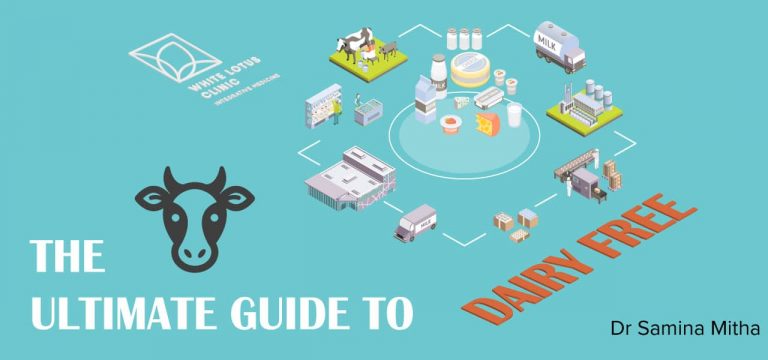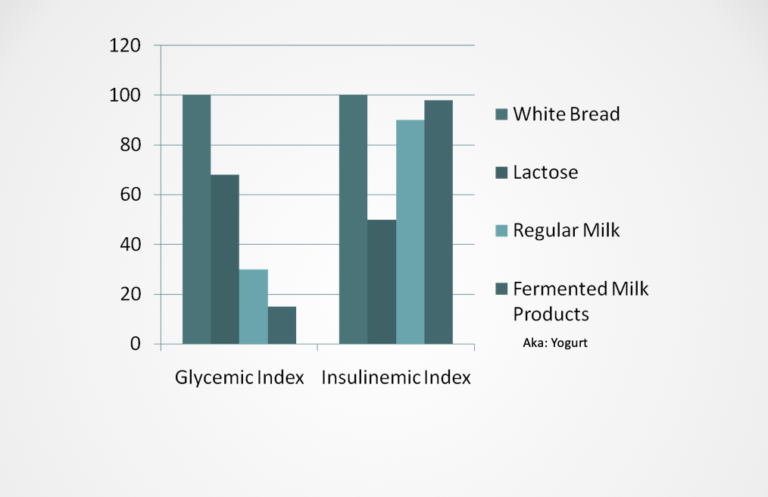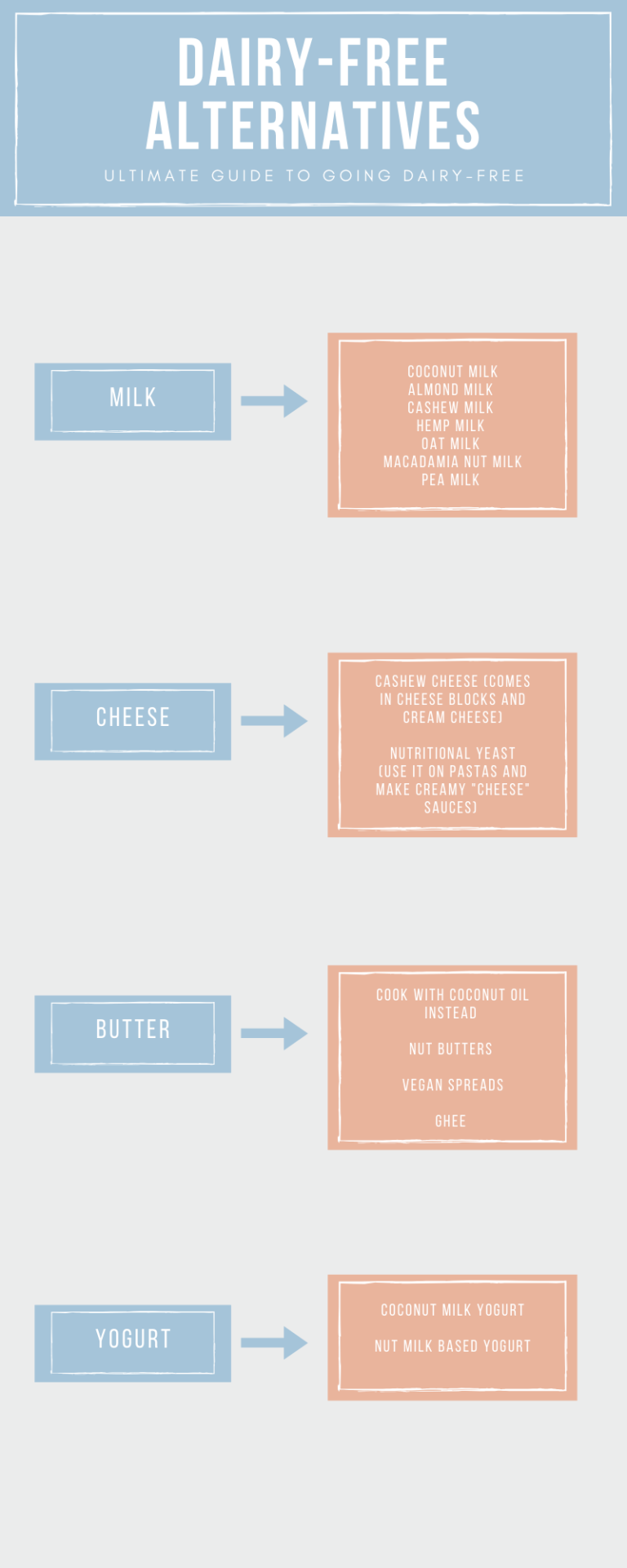The Ultimate Guide to Going Dairy Free
Going dairy free when you have PCOS can be a controversial topic. Do a Google search and you’ll see many conflicting articles out there. These will argue whether, in fact, a dairy-free diet is considered appropriate if you have PCOS. This guide is going to break it all down for you.
I’ll show you the connection between dairy and insulin resistance, some research about dairy and PCOS, and guide you on how to go dairy free with simple, easy tools.
When it comes to PCOS, one of the fundamental topics is insulin resistance. This resistance is often the root cause of many PCOS cases. Once your cells become resistant to insulin, the levels remain high in the blood stream. This can cause many of the symptoms related to PCOS, as insulin can drive testosterone production. In turn, this can lead to irregular cycles, acne, hair loss, and hirsutism. Higher insulin levels in the blood stream can also lead to the most dreaded symptom of PCOS: weight gain.

Research on Being Dairy Free with PCOS
There are in fact a few studies looking at dairy and its impact on PCOS. For example, one Iranian study with 400 women found that there was a direct relationship between milk consumption and the risk of having PCOS.
Another study showed that Branched Chain Amino Acids (BCAA) can cause insulin resistance. BCAAs are commonly found in milk products. This specific study followed 1,205 individuals for approximately 2.3 years, and found that there was a 60% increase insulin resistance.
This 8-week study with 24 overweight women with PCOS used a dietary intervention consisting of low dairy and low starch. The results obtained included a reduction in weight, fasting insulin, testosterone, and insulin resistance after the diet was implemented. The study only allowed for 1oz of full fat cheese per day.

Insulin Index
We now know that dairy products can increase insulin resistance. This resistance can aggravate PCOS, result in higher testosterone levels, and can increase the risk of developing diabetes.
The insulin index will tell us how much certain foods will raise insulin levels. This is in contrast to the popular index used for diabetics, known as the glycemic index.
What’s really interesting is that dairy products are low on glycemic index, but high on insulin index.
See the chart below that Dr. Fiona compiled. Milk and yogurt are considered low on the glycemic index but extremely high on the insulin index!!

Getting Adequate Calcium when Going Dairy Free
This is a question we often get! Going dairy free doesn’t mean you’ll become calcium deficient. After all, there are many foods other than dairy that contain this mineral. Foods high in calcium include broccoli, leafy green vegetables such as kale and spinach, and chia seeds. Additionally, nut milks are often fortified with calcium.

Foods That Contain Dairy
It may seem obvious which foods contain dairy, but sometimes it can get confusing! Make sure you read all nutritional labels very carefully. After all, some products might seem like they don’t contain cow’s milk ingredients, when in fact they do!
- Milk
- Cheese
- Butter
- Yogurt (including Greek yogurt, goat yogurt, sheep yogurt)
- Ice cream
- Milk chocolate
PLEASE NOTE: Eggs are not considered a dairy product!
What About Ghee?
Ghee is a good source of dietary fat. Furthermore, it doesn’t have enough branched chain amino acids to cause an insulin spike like milk or yogurt. However, if you have a sensitivity to dairy products like digestive concerns, or skin issues like eczema, then it’s best to avoid ghee as well.

Must-Have Pantry Items when Going Dairy Free:
- Nutritional yeast
- Cashews
- Coconut oil, olive oil, avocado oil

Additional Tips:
- Find vegan recipes and add your choice of animal-based protein
- Don’t give up! Going dairy free takes time, so be patient with the process
- Search for paleo recipes, as the paleo diet is dairy free
Key Points:
- Dairy products, especially milk and yogurt, are high on insulin index
- Going dairy free can help with many symptoms related to PCOS
- Read all nutrition labels carefully and research dairy-free recipes on Pinterest
Next Steps
- Check out our website for articles related to going dairy free
- Wondering if you have insulin resistance? Book an appointment with one of our doctors to get tested
References
- Asghari, G., Farhadnejad, H., Teymoori, F., Mirmiran, P., Tohidi, M., & Azizi, F. (2018). High dietary intake of branched-chain amino acids is associated with an increased risk of insulin resistance in adults. Journal of Diabetes, 10(5), 357–364
- Phy Ali M, J. L. (2015). Low Starch/Low Dairy Diet Results in Successful Treatment of Obesity and Co- Morbidities Linked to Polycystic Ovary Syndrome (PCOS). Journal of Obesity & Weight Loss Therapy, 05(02)
- Rajaeieh, G., Marasi, M., Shahshahan, Z., Hassanbeigi, F., & Safavi, S. M. (2014). The relationship between intake of dairy products and polycystic ovary syndrome in women who referred to Isfahan University of Medical Science Clinics in 2013. International Journal of Preventive Medicine, 5(6), 687–694




